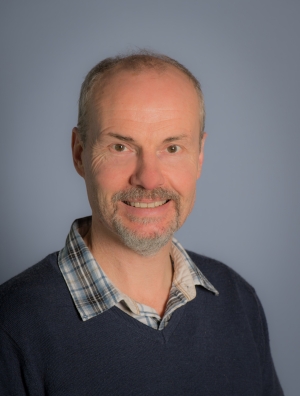Unleashing ICT potential
Research news
Collaboration between universities and industries to develop new technologies and apply the results of research in the workplace is becoming ever more important to both sectors.
With this in mind, Deakin’s new Pro Vice-Chancellor ICT Innovation and Translation, Professor John Grundy, is setting out to optimise the considerable potential of the University’s ICT capabilities.
“There is a lot of activity within the ICT space at Deakin and a lot of R&D going on, but there is also much potential to be realised,” he said.
“We have a lot of people who can make a really significant difference in translational research in industry and I’m keen to support them in applying their capabilities in this way.
“There is also great potential to enhance the employability potential of students and link them to projects that expose them to industrial R&D projects and internships.”
Prof Grundy was previously Dean of the School of Software and Electrical Engineering at Swinburne University of Technology, and Director of The Swinburne University Centre for Computing and Engineering Software Systems.
He bases his research in the areas of software tools and techniques, software architecture, model-driven software engineering, visual languages, software security engineering, service-based and component-based systems and user interfaces.
He also consults with a variety of companies, including Thales Australia, CA Labs, XSol Ltd, Orion Health Ltd, Peace Software Ltd, and Whitecloud Systems Ltd.
While at Swinburne, Prof Grundy worked on an ARC Linkage project with CA Labs, which resulted in five patent applications and incorporation of the software into a CA commercial product used by thousands of developers around the world.
He said that the purpose of his Pro Vice-Chancellor role is to provide leadership and co-ordinate a “one Deakin” approach to ICT, particularly focusing on positioning Deakin as the preferred university partner for innovative ICT R&D projects in Australia.
“Achieving this will mean significantly increasing our internal and external collaborative R&D relationships and projects, as well as our translational outcomes,” he said.
“This will help us to enable many diverse, high quality interdisciplinary research projects via ICT innovations.
“We have so much potential to break out of our traditional research silos and work together across faculties and research centres. ICT is one of, if not the most, diverse activity in the University, working across multiple disciplines and schools - and there are exciting opportunities to build new internal partnerships with our research institutes and centres.”
Prof Grundy describes his role as “very much a ‘works with’ one,” collaborating with a wide range of the University’s centres and schools, industry partners and state and federal government entities to develop new opportunities and grow existing ones.
“We’re seen as the ‘Big R’ research university in cyber security, for example,” he said. “I’d like to explore how we can leverage that in the applied industrial space.
“We have to create opportunities for industry to know what we do and describe our capabilities from an industry translational point of view."
Previous experience with the health and community sectors has also made him aware of the potential to be realised in universities working closely with health professionals and organisations. This potential is already being explored by research centres at Deakin, such as the Centre for Pattern Recognition and Data Analytics, which has collaborated with Barwon Health on the development of an app for improving the hospital’s efficiency and levels of patient safety.
“I’ve worked with research teams, including here at Deakin, that have collaborated with hospitals and community support organisations to make a positive difference in people’s lives through developing a wide range of ICT solutions to medical and community issues,” Prof Grundy said.
“Lots of not-for-profits have problems with effectively managing the data they have. It would be good to enable community organisations to do more with less by the clever use of ICT to improve the services they offer.”
Share this story
 Deakin University's Pro Vice-Chancellor ICT Innovation and Translation, Professor John Grundy.
Deakin University's Pro Vice-Chancellor ICT Innovation and Translation, Professor John Grundy.
